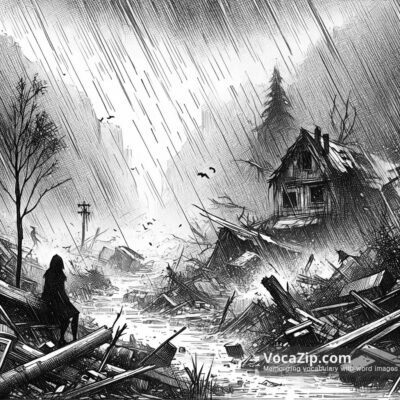awful meaning
awful :
very bad, unpleasant
adjective
▪ The weather is awful today.
▪ The weather is very bad today.
▪ She felt awful after the test.
▪ She felt very bad after the test.
paraphrasing
▪ terrible – very bad
▪ dreadful – very bad
▪ horrible – very bad
▪ unpleasant – not nice

Pronunciation
awful [ˈɔː.fəl]
The stress is on 'aw' and sounds like 'aw-ful'.
Common phrases and grammar about awful
awful - Common meaning
adjective
very bad, unpleasant
Part of Speech Changes for "awful"
▪ awfulness (noun) – the state of being very bad
▪ awfully (adverb) – very badly
Common Expressions with "awful"
▪ awful weather – very bad weather
▪ awful feeling – very bad feeling
▪ awful noise – very bad noise
▪ awful experience – very bad experience
Important examples of awful in TOEIC
Vocabulary examples from the TOEIC test
In TOEIC vocabulary questions, awful is often used to describe negative experiences or conditions.
Example of a confusing word: awesome (impressive or excellent)
Grammar examples from the TOEIC test
Awful is used as an adjective to describe nouns, often appearing in questions about feelings or conditions.
awful
Idioms and fixed expressions in TOEIC
awful lot
'very much', used to emphasize a large amount.
awful to behold
means 'very shocking to see', used to describe something visually striking.
Differences between similar words and awful
awful
,
terrible
differences
Awful and terrible both mean very bad, but awful can imply something unpleasant, while terrible can imply something frightening.
Words with the same origin as awful
The origin of awful
The word awful comes from the Old English 'egefull', meaning 'full of awe', but its meaning shifted to 'very bad'.
Word structure
It has the root aw (awe) and suffix ful (full of), originally meaning 'full of awe'.
Words with the same origin
The word's root is unclear or difficult to confirm.
Please select an image in the quiz
Previous post and next post


uncomfortable
1300
uneasy, restless
adjective ┃
Views 0






